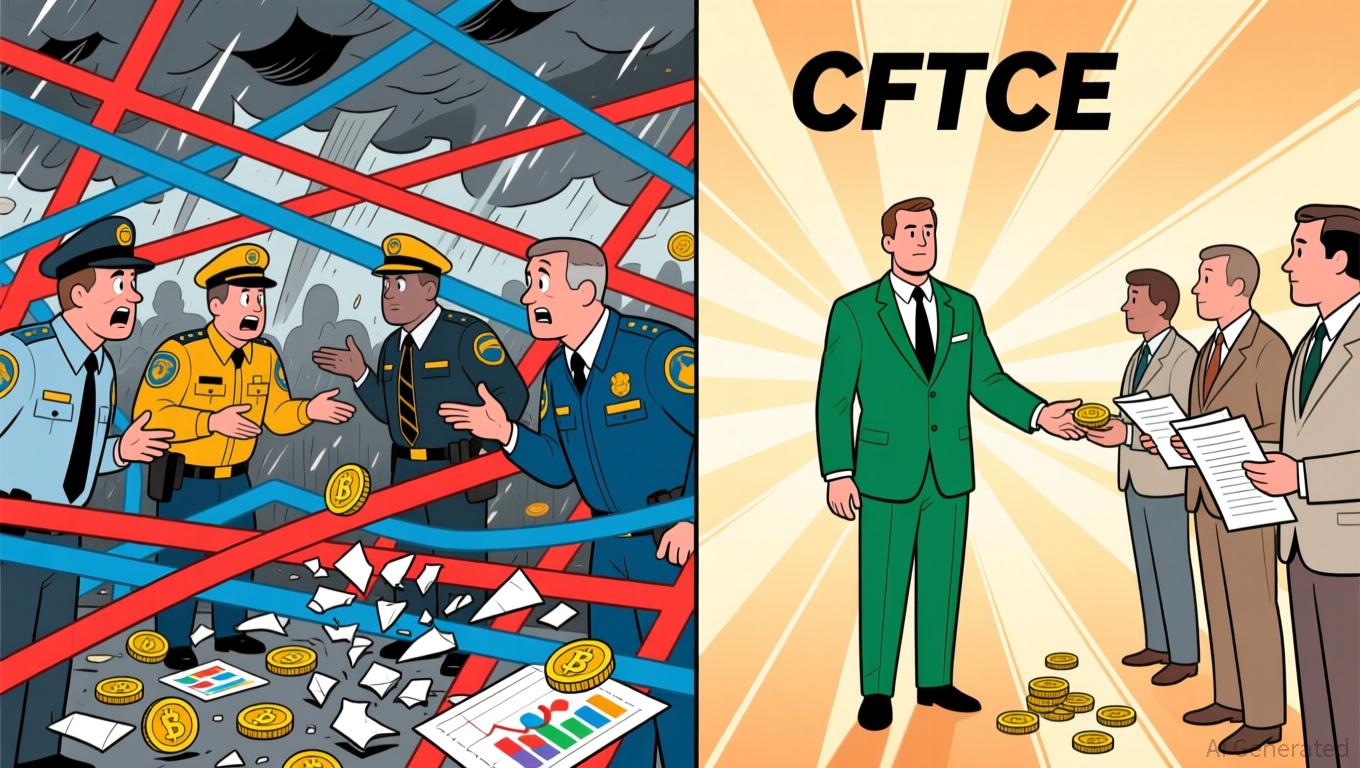Ripple sets sights on TradFi as XRP volumes soar and deals stack up
Ripple is making a hard push into traditional finance, and the numbers back it up. The company has spent nearly $4 billion this year snapping up financial infrastructure companies in a bid to blend crypto with banking.
In an interview with CNBC at the Swell 2025 conference in New York, CEO Brad Garlinghouse made it clear that Ripple is quite literally buying its way in right now.
“I want to see Ripple invest in [the] future and get ahead of where that market’s going,” Brad said on Tuesday.
The company’s entire strategy now leans on using crypto tech inside the very systems that once shunned it.
“The assets we have been buying have been on the traditional finance side, so we can bring crypto-enabled solutions to that traditional financial world,” Brad added.
Ripple’s long-game is to inject its blockchain tech, and XRP, directly into financial pipes that already move trillions daily.
Ripple buys up TradFi firms, raises half a billion
In April, Ripple dropped $1.3 billion to buy Hidden Road, a major prime brokerage. Later in the year, it paid over $1 billion to acquire GTreasury, a software company used by banks and corporates.
And just last week, the company rolled out Ripple Prime, a brokerage built for U.S. institutions that want access to over-the-counter crypto trading.
Ripple also raised $500 million in fresh funding this fall, pushing its overall market value to around $40 billion, all in 2025. The timing is no accident. Institutional appetite for crypto has grown as U.S. regulators pull back.
Under President Donald Trump, the Securities and Exchange Commission and Commodities Futures Trading Commission have relaxed their crackdown on the industry.
Big banks are taking the hint. Bank of America and Citigroup are now exploring stablecoins, with Citi laying out plans for a full custody service launching in 2026. JPMorgan announced in June that it plans to introduce a deposit token on Coinbase’s Base blockchain.
Meanwhile, institutional investors have dumped billions into Bitcoin ETFs since their U.S. debut in January 2024.
“The United States used to lean out on crypto, and now we’re leaning in, and I think people underestimate how big a shift that is,” Brad said. For Ripple, it means an open path to plug in, so long as the tools and deals are in place.
XRP tech offered to banks despite legal freeze
Alongside building its own services, Ripple wants to license its XRP Ledger to banks and financial giants trying to move into crypto. That tech runs the native XRP token and is designed for fast, cheap transactions.
Brad said the more real-world usage Ripple can build around XRP, the better it is for the broader network.
Still, XRP hasn’t moved much in 2025. While Bitcoin and Ether have jumped to $126,000 and $3,900, respectively, XRP has been mostly flat. Brad said big partnerships could change that, but admitted that red tape is still holding things back.
The crypto industry had pinned hopes on a bill called the Clarity Act, which would’ve created clear rules for crypto company and token holders.
But with the U.S. government shutdown now in its sixth week, that bill isn’t moving anywhere. “Until we have that [legal go-ahead], it’s gonna be hard,” Brad said. “Banks are looking for and need that clarity for them to really lean in.”
Disclaimer: The content of this article solely reflects the author's opinion and does not represent the platform in any capacity. This article is not intended to serve as a reference for making investment decisions.
You may also like
Bitcoin News Update: Trump's Pause on China Tariffs Triggers Worker Protests Over Future of U.S. Shipyards
- Trump administration suspends China tariffs on shipbuilding imports, drawing labor union criticism over domestic industry risks and worker refunds. - 175 H-1B visa abuse investigations reveal $15M+ potential refunds, as unions warn of wage suppression and corporate favoritism in trade policies. - Square enables Bitcoin payments for 4M U.S. merchants, advancing crypto adoption while Trump dismisses inflation concerns and vows meatpacking crackdowns.

Bipartisan Legislation Assigns Crypto Regulation to CFTC to Clarify Oversight Uncertainty
- U.S. lawmakers propose shifting crypto regulation from SEC to CFTC via a bipartisan bill, reclassifying most digital assets as commodities. - The draft aims to resolve regulatory ambiguity stifling innovation, building on stalled House CLARITY Act efforts during the 38-day government shutdown. - Market optimism surged as shutdown relief pushed Bitcoin above $105k, with ETF outflows persisting amid anticipation of clearer CFTC-led oversight. - Critics warn of CFTC resource constraints, while proponents hi

Solana News Update: DevvStream Invests in SOL Despite $11.8M Deficit, Shows Strong Confidence in Sustainable Blockchain Prospects
- DevvStream Corp. (DEVS) disclosed holding 12,185 SOL and 22.229 BTC, staking SOL for 6.29% annualized yield amid a $11.8M fiscal 2025 loss. - The company launched a digital asset treasury via BitGo/FRNT Financial, securing $10M liquidity from a $300M convertible note facility. - Plans include a 2026 tokenization platform for carbon credits and Solana staking, aligning with its de-SPAC/Nasdaq listing strategy. - Despite crypto market outflows, DevvStream's staked SOL attracted inflows, contrasting broader
